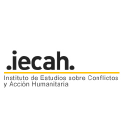WORKING WITH DG ECHO AS AN INTERNATIONAL ORGANISATION | 2014 - 2020
IMPLEMENTING PARTNERS / SUB-DELEGATEES
An Implementing Partner may be any NGO, IO or a local authority that the UN Agency may work with in order to implement certain activities in the Action. The Implementing Partner needs to be mentioned in the Single Form at proposal stage or else subsequently communicated to ECHO.
The notion of an Implementing Partner has existed in ECHO's General Conditions since, at least, 2008 and has not substantially changed in terms of the tasks that they may perform (operational and related activities to implement the Action). Under the new Financial Regulation, however, an Implementing Partner is strictly speaking a “grantee” (a grant is to be understood as such under the rules of our Partner UN/IO) since it receives funds under the Action (even if this is not for its own benefit but that of the final beneficiaries). This is reflected in Article 1 of the General Conditions which says that an implementing partner is “a natural or legal person to whom a grant has been awarded by the International Organisation. Implementing Partners can sub-grant and procure for the implementation of their activities”.
The notion of a “sub-delegatee” came about under the new Financial Regulation which provides for a Delegation of powers in certain cases by the Commission to International Organisations. A sub-delegatee, as its name suggests, is not considered to be a “grantee” like an Implementing Partner is - but actually receives a delegation of powers in relation to the performance of Budget Implementation Tasks usually entrusted to the Commission. A sub-delegatee is placed in the shoes of the signatory of the Agreement with ECHO (the delegatee) for the purposes of the tasks delegated to it. This is why sub-delegation needs to be expressly justified and approved by the Commission.
Consequently, a Sub-Delegatee can only be an IO/UN entity or an authority that would have been entitled to sign a Delegation Agreement in its own right. This means that the Sub-Delegatee must have passed an ex-ante Pillars Assessment which is required of all IOs before working with the Commission through a Delegation Agreement.
In practical terms the UN would work with an entity under the “Implementing Partner set up” in cases where the other entity is:
- an NGO;
- a local authority; or
- another IO or UN body; and
being assigned particular operational activities to perform on behalf of the signatory of the Agreement with ECHO (i.e. not being delegated wider powers to perform Budget Implementation Tasks on behalf of the Commission).
UN could work with an entity under the “Sub-Delegatee set up” in cases where the other entity is:
- an IO/UN body or local authority that has successfully passed a Pillars Assessment;
- to be entrusted with Budget Implementation Tasks on behalf of the Commission, and
- expressly accepted as a sub-delegatee by ECHO in the IMDA.
ECHO considers that, when it is possible to clearly assign tasks and objectives, Implementing Partners are sufficiently empowered to perform most humanitarian aid activities on the ground as, apart from carrying out the activities directly themselves, they may also sub-grant and procure for the implementation of their assigned activities.





